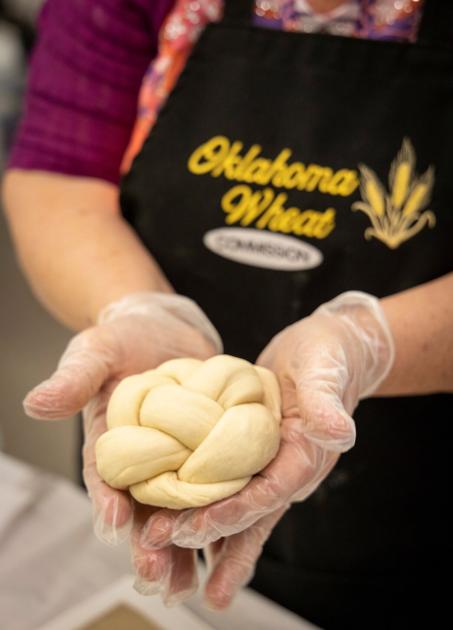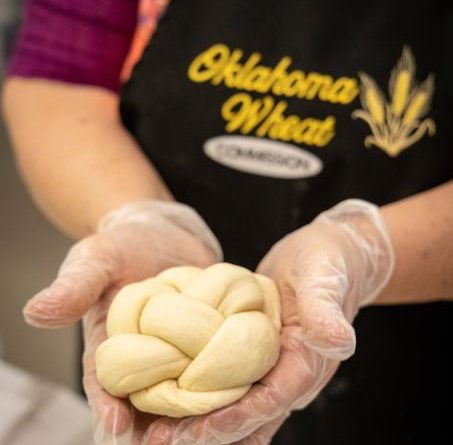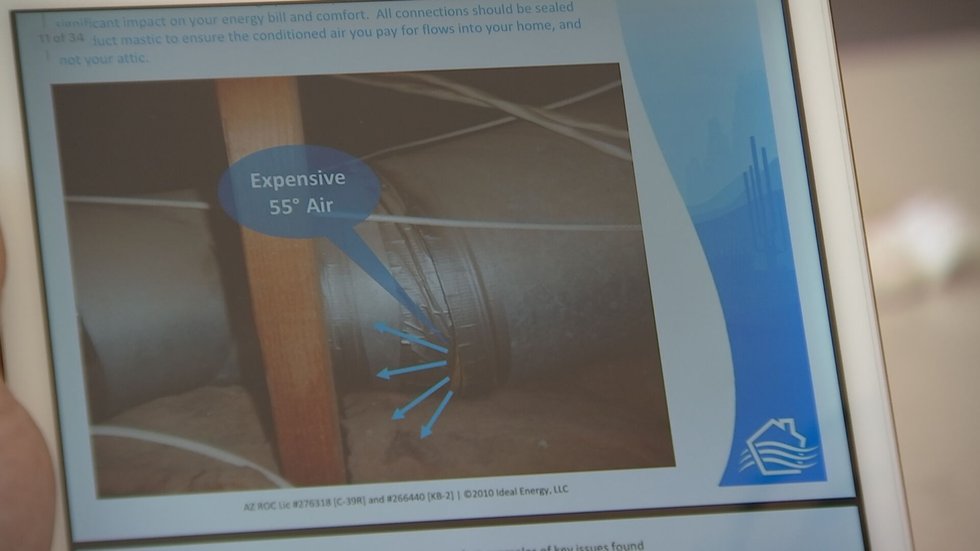Home baking revival spans generations | Ag / Energy | enidnews.com – Enid News & Eagle
Energy Disrupter

#inform-video-player-1 .inform-embed { margin-top: 10px; margin-bottom: 20px; }
#inform-video-player-2 .inform-embed { margin-top: 10px; margin-bottom: 20px; }
Arleen James considers the bread-in-a-bag exercise an ideal lesson plan.
When the county extension agent visits her local kindergarten class, she leads the students through the process of combining flour with warm water and yeast in a Ziploc bag and “smooshing” it together before baking it into individual loaves.
Beyond the benefits of mixing and measuring, it drives home the point that there’s a complicated supply chain behind every item that appears on store shelves.
“I ask the kids where their food comes from. ‘The store,’ they all chime in. But by the end of class, they know that grain is grown on a farm and then it goes to a mill for processing, and all of these other steps it has to go through first,” she said recently from her office in Guymon.
Beau Leland also sees the value in connecting kids back to the source of their food.
Several years ago, Leland and his wife Stefanie moved to a 20-acre farm 20 minutes from downtown Oklahoma City, where they raise chickens, berries and vegetables, and recently planted an orchard.
Their two kids are intimately involved in all of it. Last summer when Leland began making his own sourdough in a big oversized tub, the family together named the starter “Bready McStarterson.”
“Oliver, he just thrives outside on the farm,” Leland said of his son, who is 8. “Just yesterday he told me, ‘Dad, I don’t think I’d be nearly as happy if I lived in the city.’”
James and Leland both participated this spring in a virtual bread-making class conducted jointly by Oklahoma State University Extension Service and the Oklahoma Wheat Commission.
The every-other-week two-hour class sold out in just a few days and drew a diverse mix ranging from retired couples to teens, novices to those more experienced, all of whom were able to share in the baking experience from their own home kitchens via video conferencing.
“We had every age group, men and women, and even entire families,” recounts the Wheat Commission’s Director of Marketing and Communications Chris Kirby.
Inquiries to the Wheat Commission surged during the pandemic, but initially Kirby was uncertain about how to offer useful instruction at a time when people were restricted from gathering in person.
Taylor Conner, who is in her third year as an Oklahoma State University extension educator for Oklahoma County, partnered with her to find a solution.
Kneading to know
Conner developed an interest in bread-making two years ago at a unique one-day workshop offered by OSU’s Food and Ag Products Center with assistance from the Wheat Commission. The interactive workshop on the Stillwater campus covered everything from flour types to wheat variety development.
For Conner, it turned out to be a transformative experience.
“I think it’s the most insightful workshop I’ve ever taken,” she recalled. “Just seeing the wheat out in the wheat fields and then getting the chance to come up to the front of the room and shape the loaves. That’s really what gave me my interest in making bread, and my passion to educate others about it.”
In February, Conner reconnected with Kirby, and the two teamed up to offer their first-ever virtual bread class videotaped inside the gleaming new OKC-OSU demonstration kitchen.
Conner, who earned a dietetics degree at the University of Central Oklahoma, brought in current students from the program to assist with the classes. The curriculum covered the basics of bread, but also branched out to unique versions like focaccia, an Italian style made with olive oil and often decorated with herbs and vegetables.
The focus on decorative elements such as bread shaping, topping and painting is what drew James’ interest.
As coordinator of several home and community education groups in Texas County, she was looking for new ideas to keep her members engaged. Participation in such programs is dwindling with so many competing demands on everyone’s time.
“We’re a big agricultural county out here, and most of the women I work with have made homemade bread,” she observed. Creative bread decorating, on the other hand, felt like something fresh and particularly relevant to the Instagram age.
“In the future, I’d like to see design creativity get recognized and rewarded with the addition of some new judging categories at the state fair,” said James, who has been a volunteer judge for past baking contests.
Artistic skill is not only fun, it has marketable valuable.
Gina Long credits her participation in one of three Guymon-area community education clubs with giving her the skills and confidence to start a social media-based pie business, Long Farms Pies.
“I think I made a total of two pies before I got married, so it wasn’t really on my radar to do something like this,” she explained recently. But with support and guidance from her mother-in-law, Mary, she’s now the fifth generation to make her family’s heirloom coconut cream.
Another specialty is chocolate meringue, one of the first flavors she made as a fundraiser for her father, who passed away from colon cancer in 2015.
Long typically sells five to 20 pies a month and uses the proceeds to pay for gymnastics classes for her two kids, ages 4 and 5, while also serving as the administrative assistant for Panhandle Irrigators and running two family-owned businesses with her husband Pat.
Leland and his wife are looking for similar ways to generate extra revenue on their small acreage, which they call Twenty Farm and Forest.
“We are trying to figure out how to monetize what we’re doing out here a little bit more,” he said. “If nothing else, it would be an investment in our future.”
Hands-on appeal
Leland is a self-taught baker, and also dabbles in woodworking and coffee brewing in addition to farming. Both he and Long enjoy the meditative hands-on nature of baking from scratch and testing their skills with new challenges.
So does Conner. It’s her job to incorporate lessons about whole grains and wheat products into educational programming for various groups in the community, but she also works on perfecting her home baking skills during her free time.
“I love the science that goes into it,” she said. “It’s fascinating to me.”
While Leland mastered sourdough on his own, the recent bread class broadened his horizons and taught him a few new tricks, he said.
“Right off the bat we were kneading dough for 10 to 15 minutes at a time, and I found out I really enjoyed doing that and feeling the dough and how it changes over time,” he said.
“Our kitchen tends to be on the colder side, and it can be difficult to proof bread. It often takes two or three times longer than it should,” he continued. “I learned I could turn on the oven light and put the dough in there and just that little bit of heat from the oven light helps speed things up a bit. That was an ah-ha moment for me.”
Kirby, at the Wheat Commission, likes to see the light come on for other bakers.
As a board member with the Home Baking Association, she helps write curriculum and assists with educational and promotional activities like the National Festival of Breads, which was broadcast live on Facebook on June 9.
In recent weeks, she assisted HBA staff with hands-on training for high school family and consumer science teachers from across Oklahoma, presenting them with simple bread-making exercises they can use in their classrooms to teach everything from science to math to geography.
Related resources for use by teachers and parents are posted online at homebaking.org.
Krebs is an Enid freelance writer.
#inform-video-player-3 .inform-embed { margin-top: 10px; margin-bottom: 20px; }
Original Source: https://www.enidnews.com/news/ag_energy/home-baking-revival-spans-generations/article_da24b2ee-da10-11eb-8bf4-e77b0e87eb91.html
















